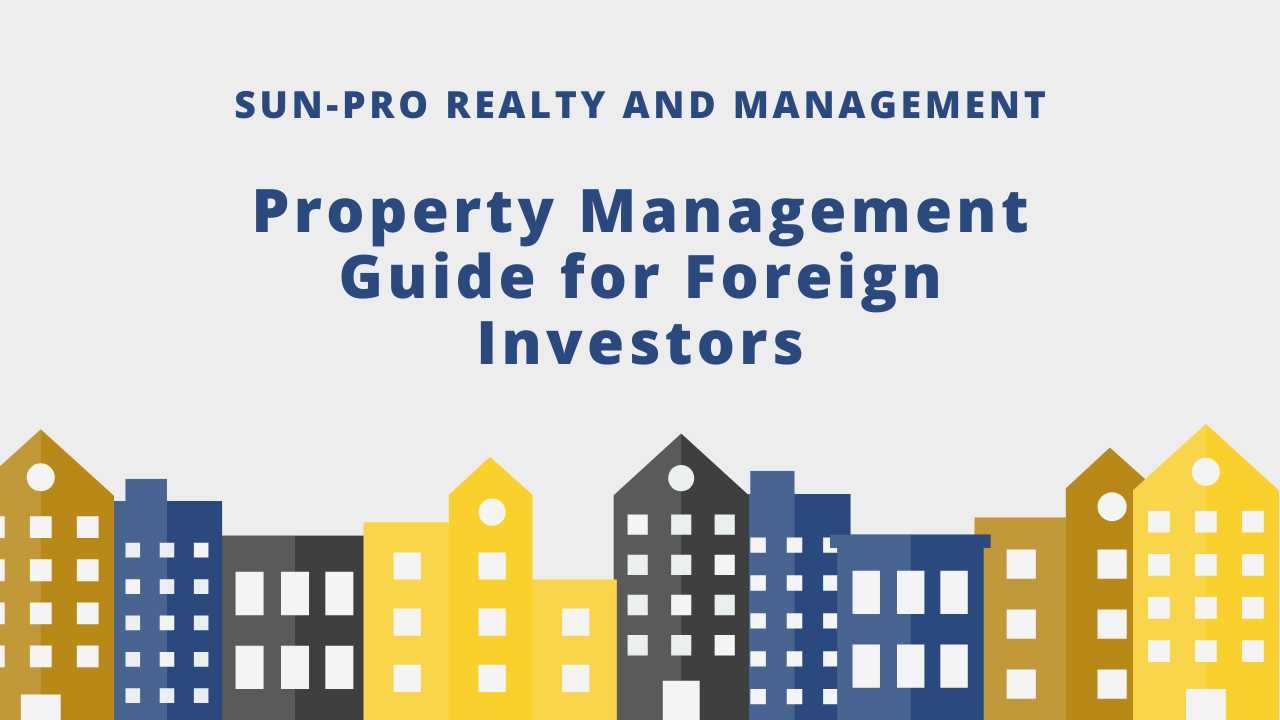
Key Takeaways
- Set Up a Legal Entity: Forming an LLC or Corporation offers liability protection, simplifies finances, and can improve access to U.S. lenders.
- Understand U.S. Tax Obligations: Foreign investors must file U.S. tax returns and may be subject to FIRPTA and other complex rules, professional tax advice is essential.
- Hire a Property Manager: A trusted, experienced property manager ensures smooth day-to-day operations, legal compliance, and peace of mind for foreign investors.
Buying real estate in the United States as a foreign investor is not only possible, it’s common practice.
Each year, international buyers invest billions in U.S. properties, drawn by strong legal protections, robust rental markets, and a stable economy. But owning property from abroad isn’t without its hurdles.
From navigating unfamiliar tax laws to handling maintenance, rent collection and tenant communication across time zones, remote property management can be complex and time-consuming.
That’s why our professional property management company Sun-Pro Realty and Management created this comprehensive guide, to help overseas landlords understand the key steps, responsibilities, and best practices for managing U.S. properties successfully from afar. Keep reading to learn more about staying compliant as a foreign investor in this property management guide.
Key Steps to Managing U.S. Rental Properties as a Foreign Investor
Here are the key steps to managing U.S. rental properties as a foreign investor:
Setting Up a Company to Purchase U.S. Real Estate
Before buying investment property in the U.S., many foreign investors choose to establish a legal business entity, such as a Limited Liability Company (LLC) or Corporation.
This step offers key advantages, including liability protection, financial organization, and a more professional presence in the market.
By purchasing property through a company, your personal assets are shielded in the event of legal disputes. This is especially important for landlords managing multiple rental units.
A formal entity also simplifies accounting and may make it easier to secure financing, as many U.S. banks and lenders prefer dealing with established companies rather than individuals based abroad.

However, forming a business in the U.S. does require navigating legal paperwork, paying registration fees, and complying with state and federal regulations.
To ensure everything is set up correctly, it’s best to consult with a U.S.-based real estate attorney or accountant experienced in working with international investors. The right structure can offer long-term protection, tax benefits, and smoother operations.
Understanding Tax Considerations for Business-Owned Properties
Foreign investors must comply with U.S. tax laws, which often differ from those in their home countries.
Rental income from U.S. properties is generally subject to federal income tax, and sometimes state and local taxes as well. Annual tax returns must be filed with the IRS to report income and expenses.
The way your income is taxed depends on the type of business entity you form. LLCs may offer “pass-through” taxation, where profits are taxed at the individual level. Corporations, however, may face corporate income tax, which can lead to double taxation if dividends are paid out.
Foreign investors may also be subject to tax withholding under the Foreign Investment in Real Property Tax Act (FIRPTA). These rules can be complex and vary depending on the situation, especially when it comes to income distribution or selling the property.
To avoid legal issues and penalties, it's essential to consult a U.S.-based tax advisor who understands international tax treaties and IRS rules for foreign ownership. Keeping detailed records and separating business and personal finances will also support long-term compliance.

Hiring a Property Manager for Remote Oversight
Managing a property from another country is not easy, especially when you’re dealing with time zone differences, language barriers, and physical distance. That’s why hiring a licensed property manager is one of the most important steps for foreign investors.
A professional property manager serves as your local representative. They handle rent collection, tenant screening, maintenance, inspections, and emergency issues. They also ensure that your property stays in compliance with local landlord-tenant laws, which can vary by state and municipality.
When choosing a property manager, look for someone who has experience working with international landlords. They should have a clear process for reporting financials, communicating updates, and managing routine and unexpected situations.
This kind of partnership brings peace of mind, knowing that your investment is being maintained and tenants are taking care of the properly.
Best Practices for Managing Rental Properties from Abroad
Once your property is set up and a property manager is in place, focus on maintaining efficiency and transparency in your investment operations. The following best practices can help:
- Clear Communication: Set expectations with your property manager about how and when you will receive updates. Monthly reports, financial statements, and maintenance updates are standard.
- Routine Inspections: Schedule regular property inspections (at least annually) to ensure your asset is being properly maintained.
- Emergency Protocols: Have a clear plan for how to handle emergencies, including repair costs, tenant disputes, or legal notices.
- Financial Oversight: Use a dedicated U.S. business bank account for all property-related transactions. Monitor rent income and expenses regularly.
- Legal Compliance: Stay updated on any changes to landlord-tenant laws in the area where your property is located. Your property manager or legal advisor should keep you informed.

By staying organized and informed, you can reduce the risks associated with remote property ownership and improve long-term profitability.
Frequently Asked Questions
- Can international investors invest in U.S. real estate?
Yes, international investors can legally purchase and own real estate in the United States, including rental properties.
- Can non-U.S. citizens purchase rental properties in the United States?
There are no citizenship requirements to own real estate in the U.S. Both individuals and foreign companies can buy and manage a rental.
- Where are foreign investors buying real estate in the U.S.?
Foreign buyers often invest in states like Florida, California, Texas, and New York. These areas have strong rental markets and attract both tourists and long-term tenants.
- What share of U.S. homes are owned by foreign buyers?
Foreign ownership represents a small but significant share of the U.S. real estate market. The exact percentage varies yearly based on economic trends and exchange rates.
Bottom Line
Managing properties in the United States as foreign investors can be a profitable venture, but it requires proper planning and expert guidance. Setting up the right business structure, understanding tax obligations, hiring a trusted property manager, and following proven practices for remote management are all key to success.
Our property management companySun-Pro Realty and Management specializes in helping foreign landlords navigate every step of U.S. property ownership. From acquisition and compliance to daily operations and tenant relations, our team provides the support and experience needed to protect your investment and maximize your returns.
Ready to invest with confidence? Contact Sun-Pro Realty and Management property management company today to get expert help with managing your U.S. rental and maximizing your rental income.
